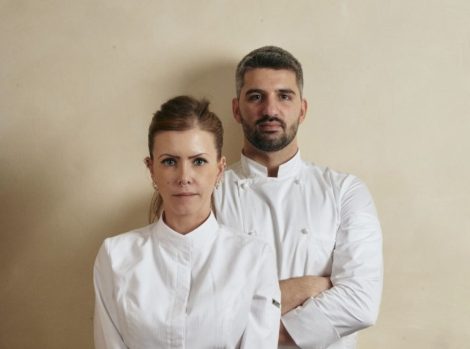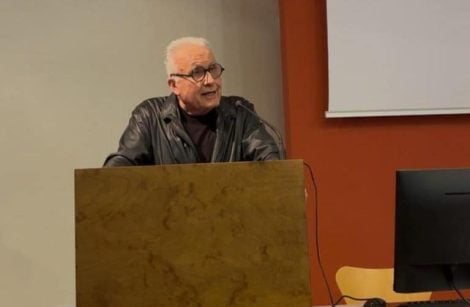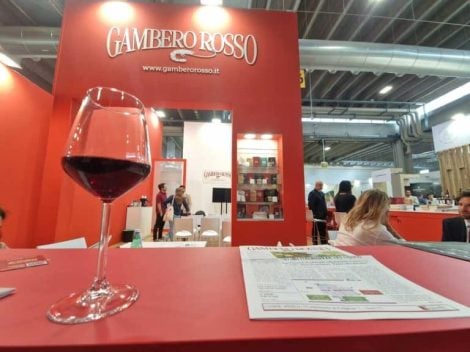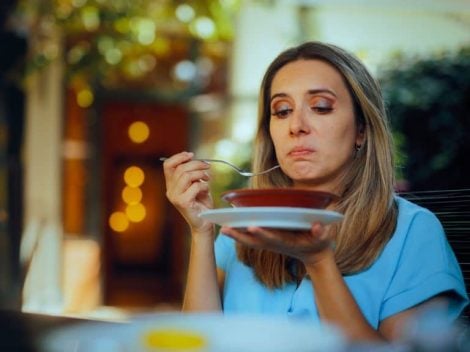Special Michelin Award as Chef Mentor to Gaetano Trovato, mentor to many rising stars in the new Italian cuisine, guiding a large group of students who now work in the finest kitchens not only in Italy, from Eugenio Jacques Boer to Matteo Lorenzini, from Simone Cipriani to Filippo Saporito, just to name a few of the most established.
The story of Gaetano Trovato begins in Sicily
Starting from Sicily and arriving in the hills of Val d'Elsa, Gaetano Trovato has created one of the most enduring chapters of Italian cuisine: not only in the creation of dishes but especially in his ability to nurture young chefs who have become leading figures in the very latest Italian cuisine.
Gaetano Trovato
That chef Gaetano Trovato is one of the primary architects of great Italian cuisine has been indisputable for decades. Like a Renaissance gentleman with the manner of a patron, he welcomes his guests daily to his new abode on the hill overlooking Colle Val d'Elsa, amidst the gentle slopes of the Sienese province. A home – the new headquarters even more than the old – where elegance reigns, underscored by certain details that, along with the people, make the place unique and inviting. Amidst the Baccarat crystal chandeliers, the immense paintings displaying photographs by Nicola Bertellotti, the antique furniture, fresh flowers stand out everywhere, one of the passions of Giovanni, the chef's brother and his alter ego in the dining room, who, before joining him at Arnolfo in 1988, lived for 22 years in the Netherlands. "Flowers are my obsession; they arrive fresh and are one of our defining elements, reminiscent of the house where we grew up as children, and they exude elegance. They're a gesture of love and kindness.
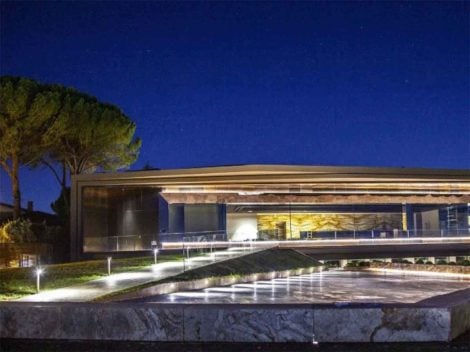
Arnolfo – The Home
The home. Yes, that's how the Trovato brothers describe their restaurant, Arnolfo – a name paying homage to the 13th-century architect Arnolfo Di Cambio, originally from Colle Val d'Elsa. It's also because it was their home in the past when they arrived here with their mother Concetta from Scicli. "It's here that our mother started working in a trattoria as a cook in 1978, and until two years ago, she helped us in the kitchen making fresh pasta," Giovanni Trovato recounts. A strong woman, who left her homeland – in every sense: in Scicli, she worked on a farm – reinventing her life and work while instilling a strict upbringing for her children. But it's thanks to such loving strictness that Gaetano carved his path, starting from a hospitality diploma and traversing the dazzling kitchens of chefs like Roger Vergé – one of the fathers of nouvelle cuisine and an ideologue of cuisine du soleil, pivotal for Trovato's subsequent philosophy – at the Provençal Moulin de Mougins, and Gaston Lenôtre – pastry master, a friend, and comrade of Vergé – as well as Angelo Paracucchi at the eponymous Locanda di Ameglia.
The story of the beginnings
Those were revolutionary years between the '70s and '80s, a time when France charted an alternative course to the rigid dictates of Escoffier, with nouvelle cuisine making waves for its principles of elegance, lightness, quick cooking, and seasonal ingredients, quickly establishing itself as a new reference model thanks to chefs like Bocuse, the Troisgros brothers, Chapel, and Vergé himself. And Italy wasn't standing idly by: Marchesi understood its potential, embracing its philosophy that since 1977 had materialized in Via Bonvesin de la Riva, capturing critics' attention and earning recognition. As a counterpoint, there was the Italian Line in Cuisine, "an extraordinary operation of gastronomic restoration," as critics Trabucco and Bolasco described it, an association of restaurateurs united in the intent to revive and valorize regional cuisine dishes, "rejecting creativity understood as capriciousness and clumsy experimentation." And then there were the outsiders, those who eluded classifications, sometimes remaining on the periphery of History, as in the case of Angelo Paracucchi, a pioneer and precursor to much of today's cuisine deserving reappraisal, advocating for that new Mediterranean cuisine that favors vegetables, fish, and above all, extra virgin olive oil instead of the then-dominant animal fats, in the name of a healthy, digestible yet never flavorless concept. This is the channel in which Trovato's personality takes shape, still resonating in his culinary philosophy today, firmly grounded in these three-dimensional coordinates: simplicity, elegance, and Tuscan essence. A cuisine that has always relied on ingredients, examined and explored with respect and sophistication. However, such continuity of values doesn't imply stagnation. Since Arnolfo found its home in 1984, accolades have poured in – the two Michelin stars, the first in 1986, the second in 1997, the three forks from Gambero Rosso, the Gambero Rosso's Emerging Chef award, Veronelli's three stars, the "Exceptional" mention in the Espresso Guide – each time reaffirming the pursuit on the dual axis of cuisine and hospitality.
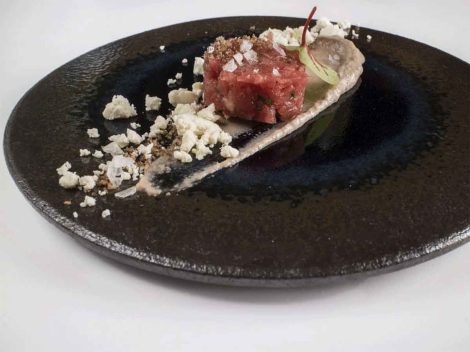
A brand-new Arnolfo
And today, 40 years later, Arnolfo has moved to the hill, into the new dazzling Casa. "It's the culmination of ideas and concepts gleaned from my 35 years in the industry, especially concerning on-site comfort at work," explains Chef Gaetano. "Working in the kitchen is already quite strenuous; my main goal is to create a good environment for myself, my family, and for all the youngsters who will want to share a passion for food in the future. My love for architecture, which has always influenced my way of cooking, had the chance to be fully expressed. Alongside the team of architects who followed the project, I designed a modern structure that, at the same time, evokes the history of Colle Val D'Elsa: the tower, in fact, pays homage to the sculptor and architect Arnolfo di Cambio. Just as in the past, we decided to have an eye on the future, creating an eco-sustainable structure; it's made of crystal and corten, an infinitely recyclable material. Recycling avoids the consumption of more petroleum and reduces the environmental load and CO2 emissions. In a time like this, it seemed more than necessary to pay greater attention to environmental conservation. I'm also pleased to have managed to create a separate laboratory where I can best demonstrate and teach the processing of ingredients to the youngsters. Arnolfo's guiding principle will always remain the same; it's who we are, what we love to do, but I'm convinced that this will be an additional stimulus to give our best. And finally, after many years of hard work, I have managed to create 'the restaurant of my dreams,' the one I envisioned when I started this job, one that, in essence, can convey my philosophy at a glance.”
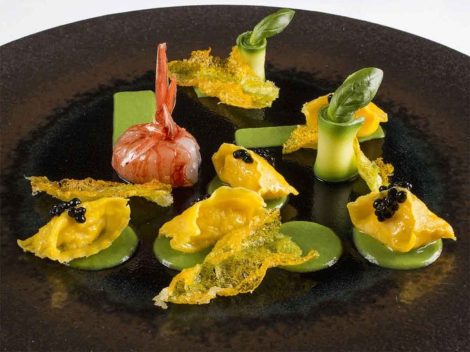
A Teaching Chef
There are many strengths in this reality, but there's an aspect of Gaetano Trovato's personality that truly makes him unique. At a time when, more than ever before, critics and industry insiders have focused on the importance of hospitality and the need to create a cohesive team not only on a professional level but also on a personal one, it's time to highlight how this value has always accompanied Chef Trovato's practice and work.
"I am certain that every chef in the world would agree that the young individuals we have the pleasure of having in our kitchens become like children to us. I see in them the same eagerness and determination that I had at their age, at the beginning of this long journey that has accompanied me for much of my life. This is a very tough job, marked by significant sacrifices, but if someone recognizes that this could be their path, they should not hesitate for a moment and work hard to achieve personal gratification, which, in my opinion, is the purest and most intense satisfaction possible."
Today, everyone agrees that Trovato is not only a great chef but also a great teacher, understood in the most genuinely educational sense of the term, capable of providing foundational teachings not from a position of superiority, dictating a single direction, but rather drawing important insights for reflection and collective growth from the process.

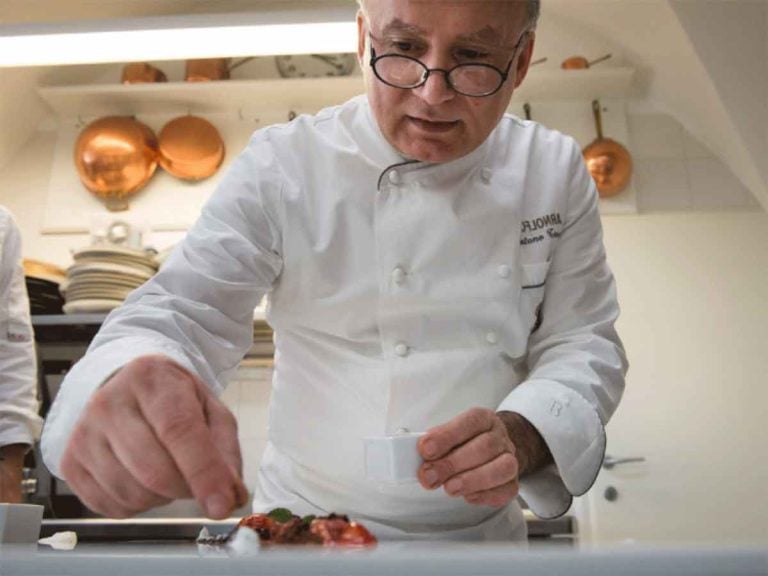
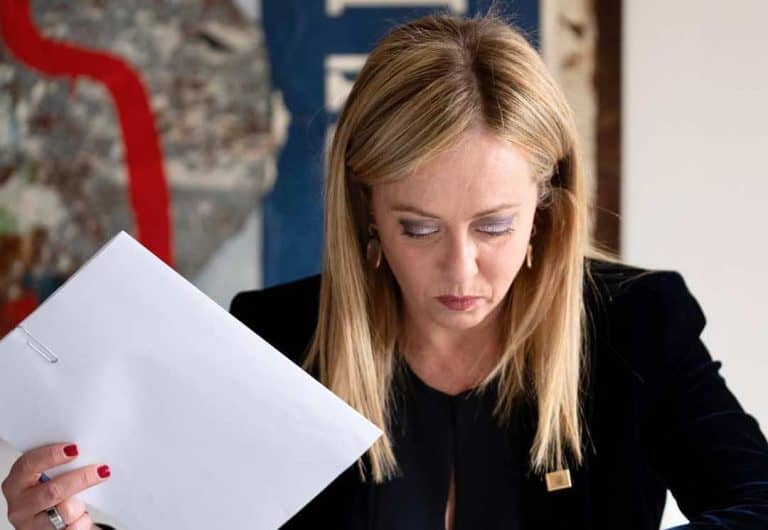 Meloni: "Tariffs? If necessary, there will be consequences. Heavy impact on agri-food sector"
Meloni: "Tariffs? If necessary, there will be consequences. Heavy impact on agri-food sector"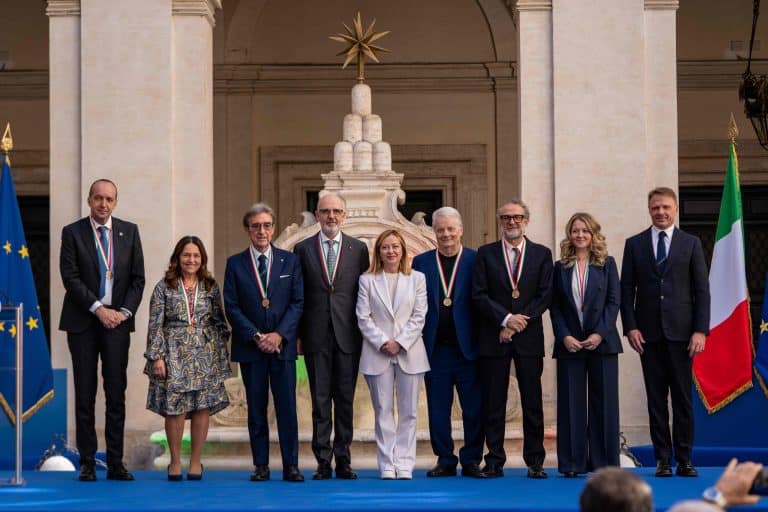 The Government honours the greats of Italian cuisine, from Bottura to Pepe. Massari: "Thank you, Meloni, the only one who listened to us"
The Government honours the greats of Italian cuisine, from Bottura to Pepe. Massari: "Thank you, Meloni, the only one who listened to us"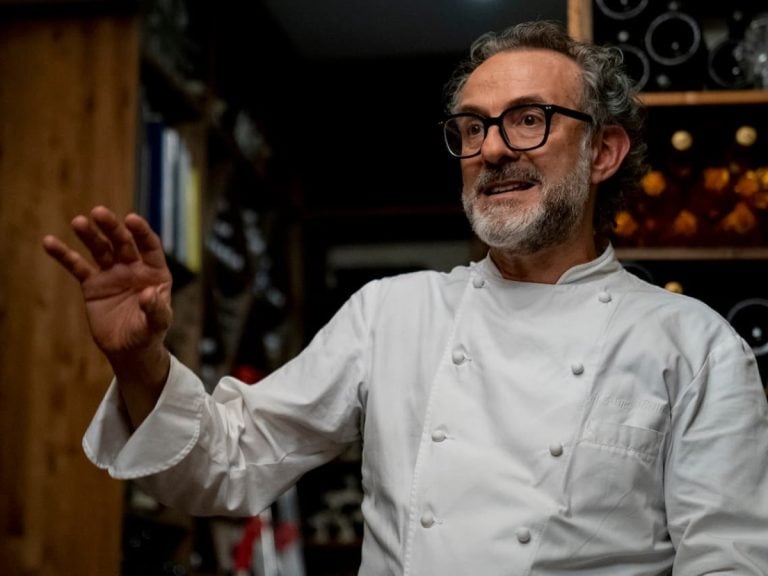 "We must promote a cuisine that is not just for the few." Interview with Massimo Bottura
"We must promote a cuisine that is not just for the few." Interview with Massimo Bottura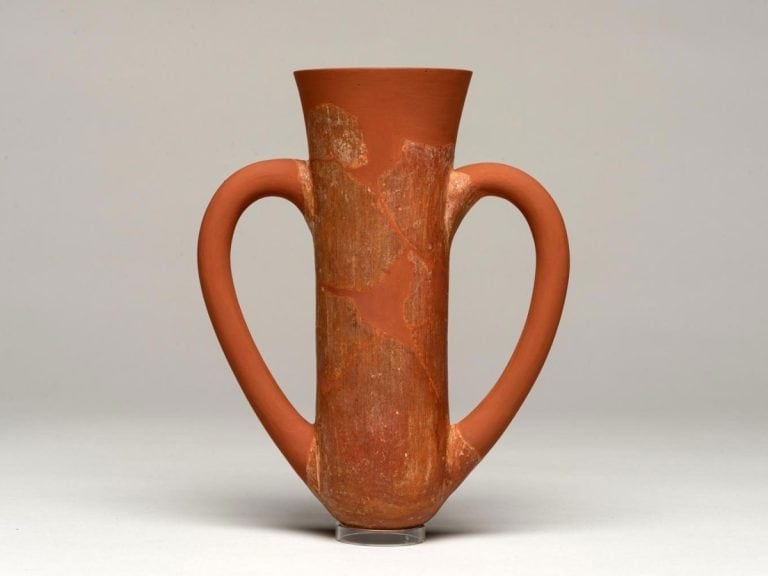 Wine was a drink of the people as early as the Early Bronze Age. A study disproves the ancient elitism of Bacchus’ nectar
Wine was a drink of the people as early as the Early Bronze Age. A study disproves the ancient elitism of Bacchus’ nectar "From 2nd April, US tariffs between 10% and 25% on wine as well." The announcement from the Wine Trade Alliance
"From 2nd April, US tariffs between 10% and 25% on wine as well." The announcement from the Wine Trade Alliance